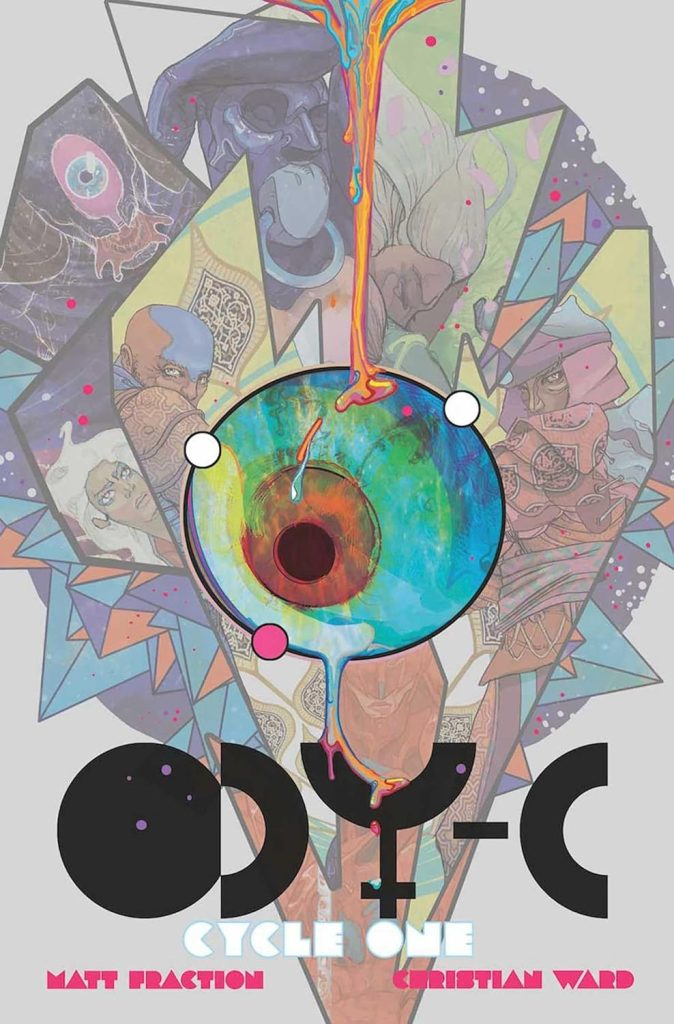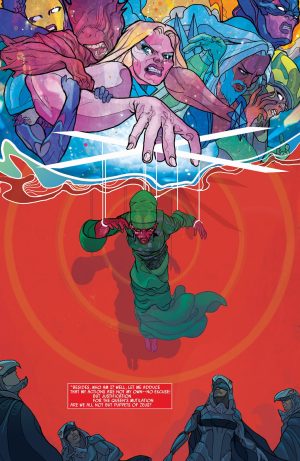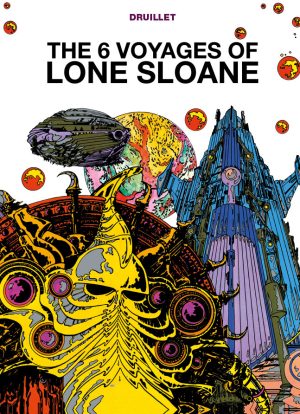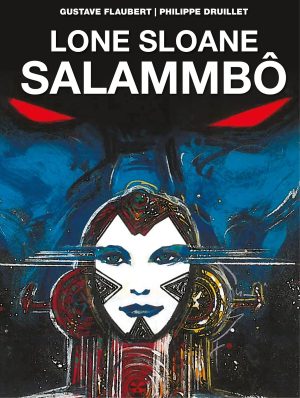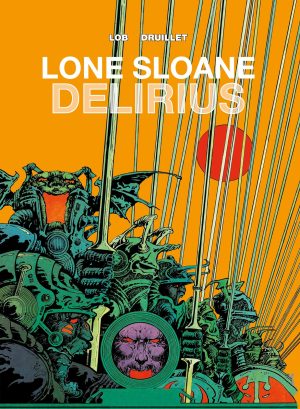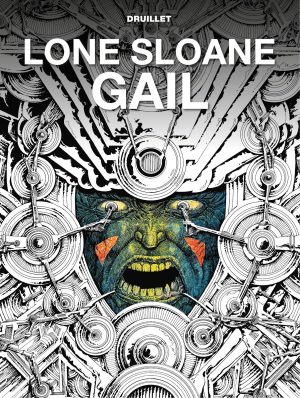Review by Frank Plowright
Ody-C is characterised by outstanding ambition and outstanding art. It begins as Matt Fraction and Christian Ward’s science fiction updating of Homer’s Odyssey, but progresses to incorporate other prominent works of fiction, notably 1001 Nights. This volume combines previously released paperbacks Off to Far Ithicaa and Sons of the Wolf along with two further chapters never previously available in book form. That’s partly an irritating form of exploitation for a series that went no further, yet such is the wonder of Ward’s art you may well want a sturdier format, and this reprints the large foldout included in the first comic, but not the trade.
Odyssia is the initial focal point, having just been on the winning side of a mighty battle along with her comrade Ene and Ganem. Now they just want to make their way home, an arduous journey even before the gods begin meddling. The first five chapters follow Odyssia’s journey, the next five concentrate on Ene, while Ganem’s fate occupies the two final chapters.
Fraction’s opening statement is switching the genders of the main characters from their original incarnations in a world where Zeus, the identity now adopted by Hera, has killed most men. It’s a means of examining gender politics, but this is gradually supplanted by the adventure elements, although rape and slavery are other issues that arise.
For all the good intentions, it’s the wonder of Ward’s pages that form the instant connection. Almost every one is a thing of beauty. From abstracted visions of the galaxy to the precision of slaughter Ward’s conceptual splendour never diminishes as he constantly astounds with colour, composition, design and form. While the actual techniques are very different and somehow more restrained, fans of the wilder flights of fantasy supplied by Jack Kirby or Philippe Druillet should take a look.
A shift to rhyming structures announces the not previously reprinted chapters, promoted as the worst homecoming party ever, and living up to the promise. Ganem’s sins come back to haunt her, although in this cycle at least, she’s the only one of the main trio to actually make it home. It’s clever, and Ward’s interpretation is astounding, but the mixture of vaudeville and extreme violence somehow never gels.
Readers Ody-C has hooked eulogise online, yet this is a tricky work, fragmented, unevenly paced and with a challenging form of storytelling, as Fraction initially works hard to emulate Homer’s verse structure. That’s rather undermined by the intrusion of modern idioms and frequent swearing. Those gods have potty mouths, although that’s admittedly well down the list of their offensive qualities.
The assumptions of ancient literature remain with us today, thankfully mightily diminished, be they slavery or the roles of women, so there’s a validity to reconfiguration highlighting pernicious habits or omissions, but it’s a thankless task. In places Ody-C seems more concerned with that than with drama. Trying something new is always welcome, but while it looks great Ody-C isn’t a project with universal appeal.
